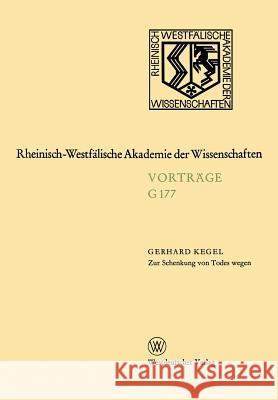Zur Schenkung Von Todes Wegen: 165. Sitzung Am 17. Februar 1971 in Düsseldorf » książka
Zur Schenkung Von Todes Wegen: 165. Sitzung Am 17. Februar 1971 in Düsseldorf
ISBN-13: 9783531071770 / Niemiecki / Miękka / 1972 / 86 str.
A common type of litigation involves claims by executors and adminis trators or, in civil law countries, heirs and residuary legatees against donees who have received gifts mortis causa from a deceased. The transfer of property by way of gift follows different rules from those applied to testamentary dispositions. In particular, a will must be in writing, whereas a gift may be oral if followed by actual delivery. Since most gifts are made orally or, at least, do not satisfy the formal require ments of a testamentary disposition and, moreover, gifts mortis causa are often made shortly before the death of the donor, the crucial question in many proceedings turns on whether there has been an actual delivery. The author discusses this problem under German law, illustrating it by reference to English and American authorities. In order to see the problem in its proper perspective, the author examines the fundamental distinctions between testamentary dispositions and dis positions inter vivos. He concludes that there are four essential character istics of a valid will. Thus, a testamentary disposition is limited to- (I) time after death; (II) the appointment of a successor to property; (III) such property of the deceased as is vested in him at death; (IV) person(s) surviving the deceased. In contradistinction, all other purported transfers of property are dis positions inter vivos.











